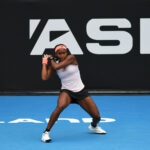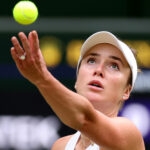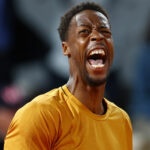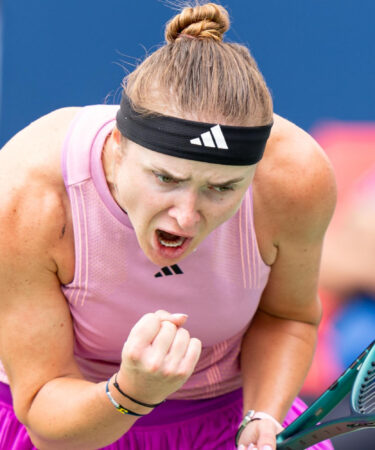“She’s dealing everything with the same energy”: our interview with Raemon Sluiter, Elina Svitolina’s coach
The Dutchman coach explains his complex role as the coach of Elina Svitolina, champion, mother and Ukrainian
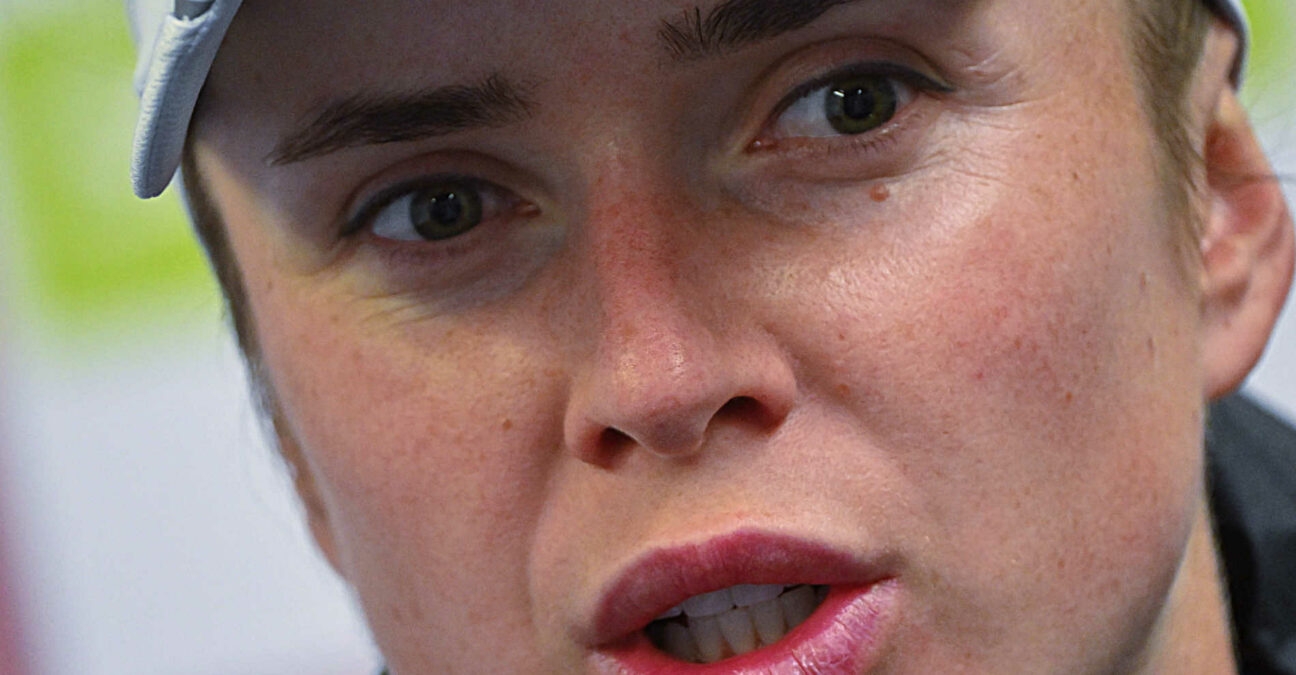 Elina Svitoina, 2023 | © Chryslène Caillaud / Panoramic
Elina Svitoina, 2023 | © Chryslène Caillaud / Panoramic
A great coach wears many hats. There’s technical and tactical advice to give but sometimes they can be therapist, mentor and friend, too.
And then there’s Elina Svitolina and Raemon Sluiter, the Dutchman who she called to help her when she decided she wanted to return to the Tour after having her first child, Skai, with husband Gael Monfils.
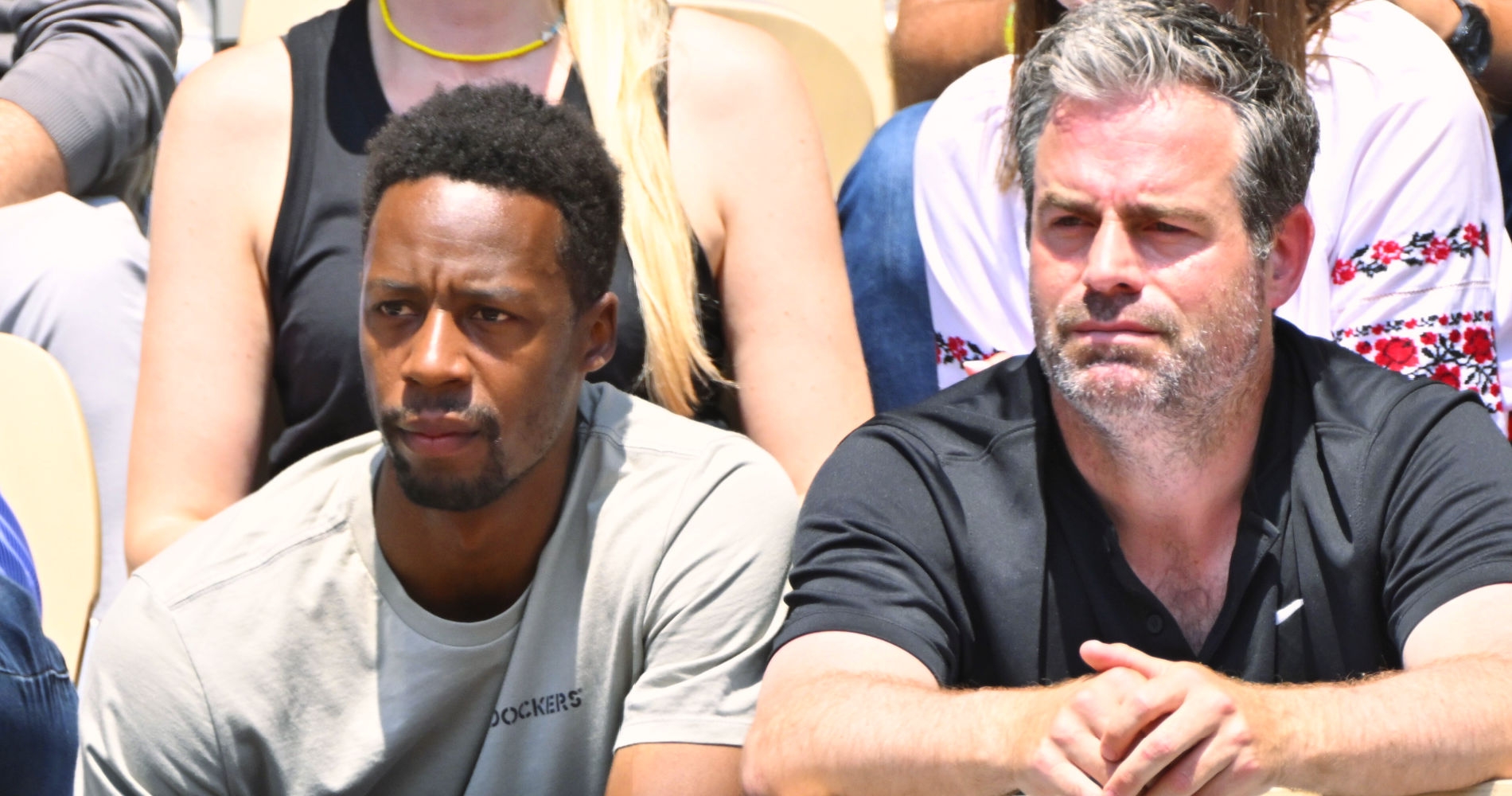
Sluiter, who took Kiki Bertens all the way into the world’s top five in 2019, has helped Svitolina get straight back up the rankings to her current mark of No 23, while she also reached the quarter-finals at the French Open and semi-finals at Wimbledon last year.
But it’s the way he’s doing his job that’s so fascinating, understanding that Svitolina is dealing with much more than tennis in her life, not just being a mother but in particular, with the emotional fall-out from Russia’s continued invasion of Ukraine.
If I see her mind is off, we’re not practising. And this is something in general that I believe in.
Raemon Sluiter on Elina Svitolina
“I try to read as much as possible, which is getting more difficult because it’s moving to the latter pages of the newspapers and it’s not breaking news anymore,” Sluiter said in an interview at the Australian Open.
“From the beginning, we talked about it, and it happened like two or three times, that for instance, (if) bombing would be very heavily that day. If I see her mind is off, we’re not practising. And this is something in general that I believe in. I think, as all coaches, we want quality on the court, but especially with so much going on with her I prefer if she’s too tired, or there’s too much going on, take a rest, go take a walk with Skai, give Gael a hug.
“And practice comes tomorrow, or the day after, but when we’re on the court, we go for quality. Of course, I’m very much looking out for her well-being, trying to help her on the court but also outside of the court. This is one of the parts where the war… and it hasn’t happened that much. Like I said, maybe only twice or something, because she’s just so, I cannot use the F word, but she’s so tough. She is so tough.”
Start was crucial to SVITOLINA AND SLUITER’S bond
Svitolina decided early on that she wanted to come back to the Tour and Sluiter began a trial in December, with already more than an inkling that the partnership would work well. What also really helped was that, with Svitolina setting her comeback for March, the pair had time to get to know each other.
“For me it was also a part of wanting to start because you have a little bit more time to work on things,” he said. “Sometimes I would almost say based on luck, if you work one week with somebody and that person makes the finals, you can pat yourself a lot on the back but you probably made the player comfortable, which is a part of the job, but the whole development of the player, please give credit to all the other ones that have been there before.
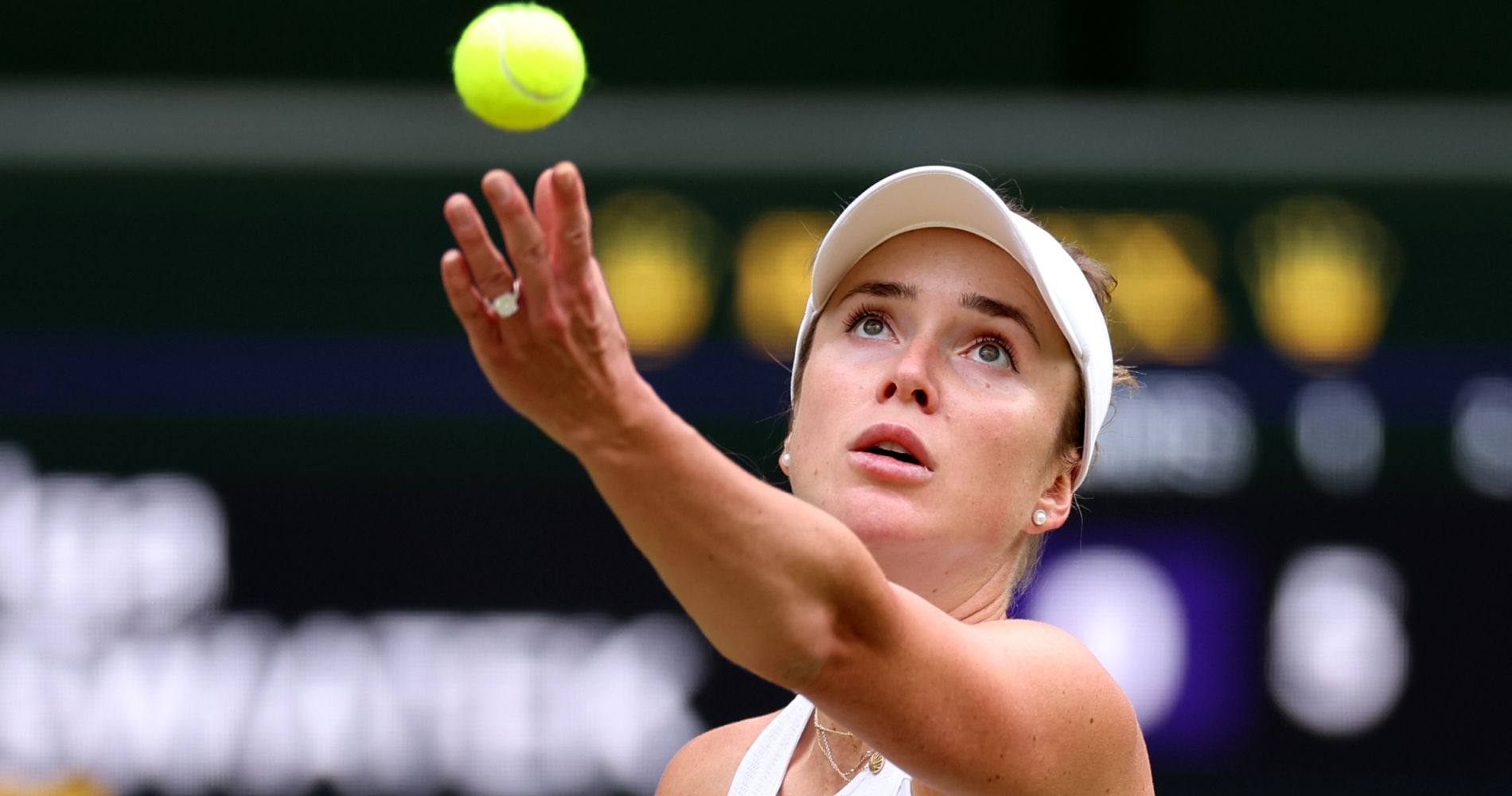
“So when you start working for two or three months, I feel you can actually you know, get to know each other more. And also try to make a difference game wise, because it’s so difficult to do that during tournament periods.”
I’ll just say, whatever I think it’s best, you know, and then it’s up to her at the end of what she does. And this is the thing with the Elina, she can surprise you. I’d like to take the conservative route more with her, because she says she might want to play two, maybe three, maybe four years more. Okay, if that is the case, we have to we have to be careful now.
“But then if she would play, she would like to play another tournament and she likes to go and then don’t be surprised if if she does well. It’s just like any one of these cases, when she makes a decision herself and it goes wrong, twice, then I step in, and I’m like, OK, I let you go, it’s your career, you’re 29, you’re very smart, ([‘m) more of a guiding kind of type. But as soon as I see that it’s 100 percent a wrong turn, I’m going to let her know. And she knows.
I will use the best tone possible. But if a tough message needs to get to her, I’m not shying away from that
Raemon Sluiter on Elina Svitolina
Being Dutch often means being direct but Sluiter said he is subtle about it, if needed. “I will always look for the for the best time possible to bring the message,” he said. “I will use the best tone possible. But if a tough message needs to get to her, I’m not shying away from that.”
A former world No 3, Svitolina showed what she is capable of when she reached the quarter-finals at Roland-Garros and the semi-finals at Wimbledon last summer. The atmosphere at Wimbledon, in particular, was electric and the warmth shown by the crowds to Svitolina really hit a chord.
Sluiter’s tears at Wimbledon
“I shed a few tears,” he said. “I’m quite an emotional guy. But just for her to do that, and see her enjoying that so much…before I think a lot of people respected her, but even when she was like, top five, she was flying under the radar. But now we’re getting more recognition for what she does, I think everybody likes that in a way. And that is nice to see that she really likes that because that’s what she deserves, with all she does.
“The match against Vika (Azarenka, in the fourth round), she came off the court after that match and she said, ‘this is it.. And that means a lot for somebody that has already done so many nice things, to get that feeling. That’s what I’m really happy for, that this couple of extra chapters in her tennis life can give her sometimes this feeling because she’s very hard on herself.”
At the US Open in September, Svitolina suffered a foot injury and had to take two months off, pretty much, to recover. The rest was more than useful, but she also needed time to get back to full fitness.
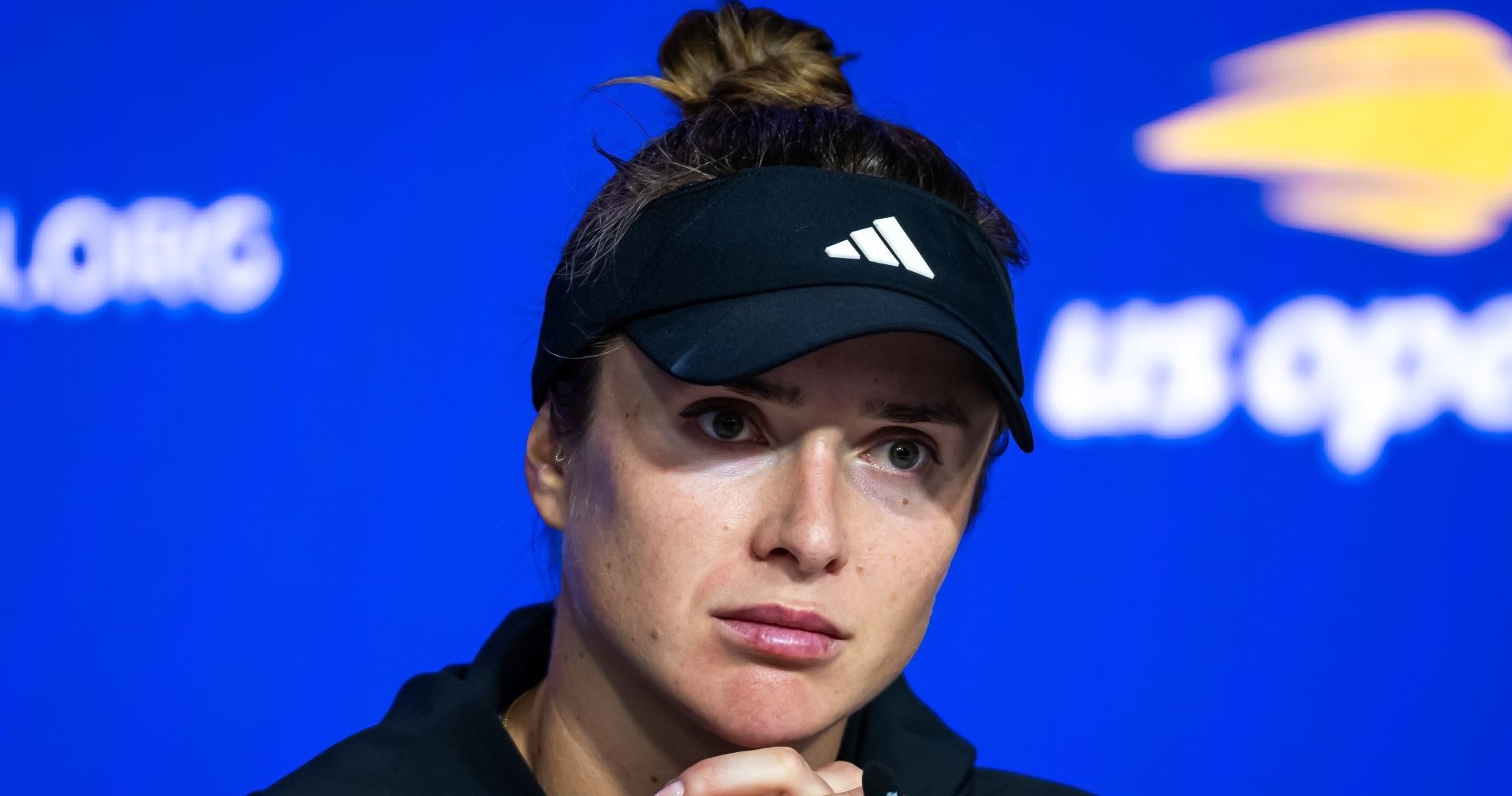
“For the physical part, because we have to take care of it so much, the body is not the same as it used to. She’s working extremely hard to get it as good as possible. It is good at the moment. But it is something you have to take care of more and more compared to when you were 20, 21.
“And especially with Elina’s mindset at that time, she was probably practising four hours a day, she would do physical practice, she’ll probably go running to the courts and running back. And she used to play a lot of tournaments. This is, I think, the time, like physical but also mental with everything going on with having a baby, that she needs to think about these things a little bit more.”
Sluiter: “Svitolina can play with the best”
Having worked with Svitolina for a year now, Sluiter knows what to expect, for the most part, and what she’s capable of.
“She can always surprise you,” he said. “And I think actually after last year, nothing would come as a surprise. You know, the line is thin, with all she does. It’s thin, because it’s impossible for anybody to keep going like this for years and years.
“But if she can keep that up and keep the quality on the court, the only thing I can say is she can she can play with the best. She played finals against Coco (Gauff, in Auckland, last week). Coco won the US Open. Beat Iga (Swiatek) at Wimbledon. OK, fair to say that grass is Iga’s worst surface by far. But still it says that on a good day she’s very close and capable of beating, beating the best.”
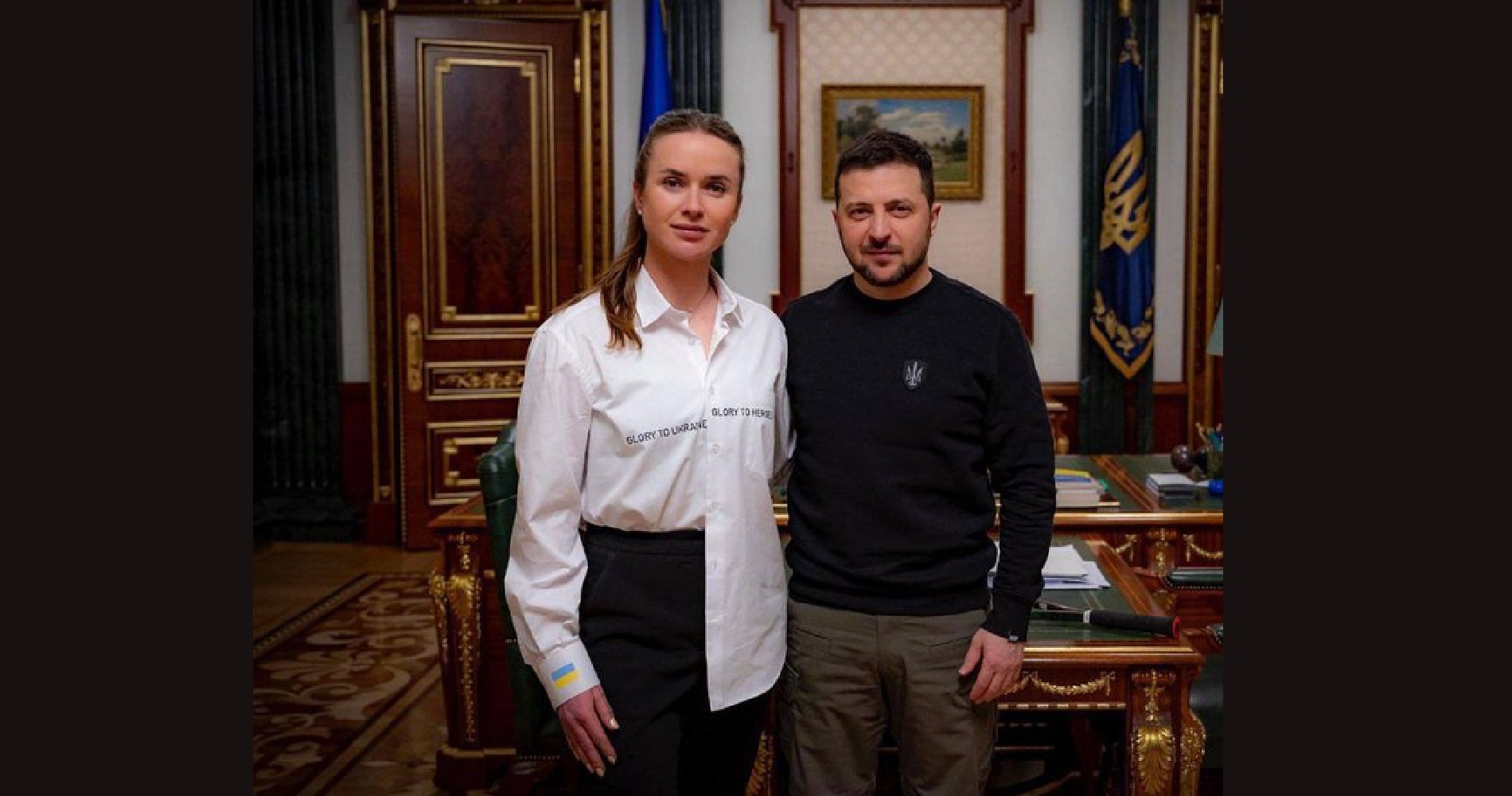
Most of all, though, Sluiter has been impressed by the way Svitolina handles all her commitments, from being a mother, to a professional tennis player, running a foundation and helping raise money and awareness for the plight of Ukraine.
“She’ll be dealing with (one thing), and then dealing with the same energy with the next thing,” he said. “And just to be to be able to deal with such things with a lot of pressure. That for me is by far the most impressive. And I have to mention Gael, as well. It’s a fantastic team. And what I’m trying to do, I would say in her personal life, in a smaller role, he is this role of trying to manage things, helping her.
“I think he’s the one that when things are getting too much for her – and sometimes of course they do, as for all of us, he is the one that that is capable of taking the needle out. And that is fantastic to see.
“As with a lot of tennis players; good is good and fine is terrible. She’s definitely one like that. It’s also the reason why she just keeps and keeps and keeps on going. So there’s definitely good in that but I’d like her to be happy and proud with what she does. Not only measured by results, because she’s a lot more than that, then the results that she that she has made.”
